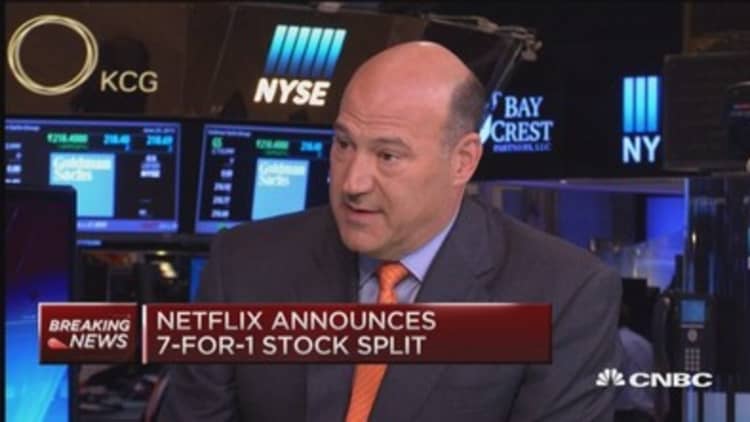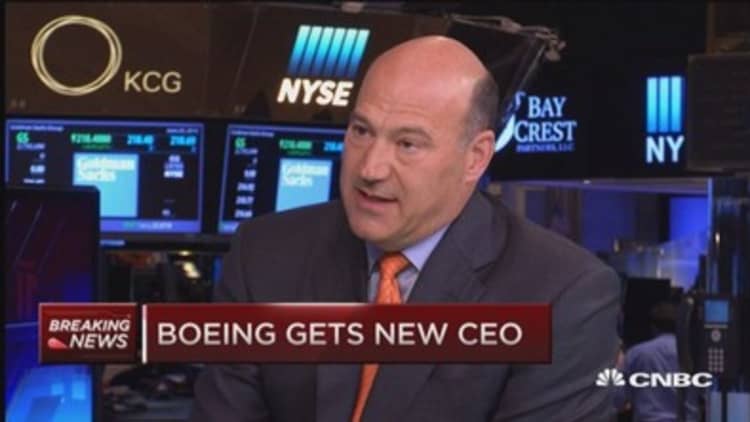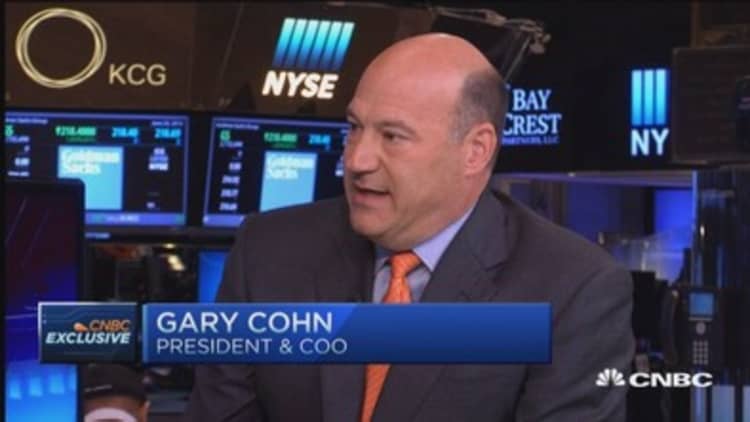


A practice that's supposed to reduce risk in capital markets could, in some cases, actually amplify problems, Gary Cohn, Goldman Sachs president and chief operating officer, warned Tuesday.
He's talking about clearing houses, through which exchange members clear their trades.
"We all depend on clearing ... it is one of the most important inventions we have in the financial services industry," Cohn said in an interview with CNBC's "Closing Bell."
His concerns come when securities that are very difficult to liquidate are put into the system. Then, that system could "ultimately become part of the problem."
Cohn first wrote about the issue in a Financial Times op-ed Tuesday.
While clearing houses lower risk in some markets, "in other markets, clearing houses can themselves become centers of concentrated risk and sources of contagion, amplifying systemic problems instead of alleviating them," he wrote.
What shouldn't be cleared are the "bilateral, bespoke transactions that our clients and customers around the world need that hedge their unique set of circumstances," Cohn told CNBC.
"The clearing house has no real ability to liquidity those transactions if that clearing member gets in trouble."
He believes there should be a threshold to make sure that if a defaulting clearing member needs to be liquidated, the market provides enough real-time liquidity to do so.
Cohn said changes to the way the clearing systems work can be instituted by Congress or various regulators, which he said are aware of the situation.
"I don't think it was their intention to clog up clearing houses with illiquid underliers within the clearing houses," he said.
—CNBC's Zev August contributed to this report.


